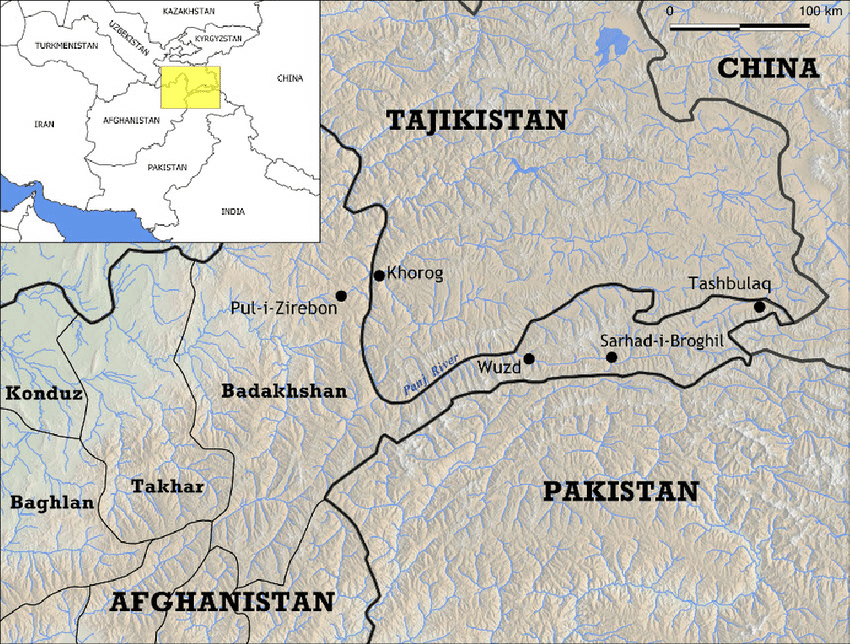Tajik Supreme Court bans activities of 29 politico-religious entities, extremist groups & their websites
News Desk
A top court in Tajikistan has proscribed more than two dozen religious parties and organisations. Among those listed are Pakistan’s Jamaat-i-Islami, Lashkar-e-Taeba, Hizbut Tahrir, Tablighi Jamaat, and the Taliban, according to a report published on CentralasianLIGHT.org, an online news portal.
Quoting reports from the Khovar news agency, the website detailed the Supreme Court’s declaration of 29 religious parties, groups, associations, and websites as “terrorist and extremist organisations” in Tajikistan. The court’s ruling led to the prohibition of their activities within Tajikistan’s territory. Additionally, the websites associated with these banned entities have been blocked, and the import of their literature has been prohibited.
As outlined in Tajik law, the report underscores the prohibition of activities such as creating political and religious parties and associations that propagate racial, national, social, and religious hatred or advocate for the violent overthrow of the constitutional system.
Moreover, Tajikistan prohibits establishing nationalist political or religious parties originating from other countries, along with their activities. Additionally, financing political and religious parties by foreign states, organisations, legal entities, or citizens is strictly prohibited within Tajikistan’s jurisdiction.
The court order highlights the emergence of groups and associations within society that defy laws, commit terrorist-extremist crimes, and sow discord among the population, often utilising media platforms to disrupt the peaceful livelihoods of citizens and public safety. These actions, as stated in the report, directly contravene the Constitution and other legal statutes.
Terrorist-extremist organizations, the report adds, aim to undermine the rights and freedoms of citizens, advocating for the violent overthrow of the constitutional system while employing religious rhetoric and media manipulation to further their agendas. Consequently, such actions have been deemed criminal offences under Tajik law.
In response to these extremist activities, the court has taken decisive action by issuing final rulings on the liquidation or prohibition of activities of these organizations, aiming to curb their detrimental impact on society.
Paragraph 2 of the relevant article underscores that involvement in the activities of political parties, religious associations, or any other organizations that have been definitively prohibited due to their engagement in extremist activities, as well as endorsing or disseminating their ideologies through mass or social media channels, is subject to punishment ranging from five to eight years of imprisonment.
Furthermore, Article 307, Clause 4 of the Criminal Code outlines penalties for organizing or participating in education or study groups of a religious-extremist nature, irrespective of the location, with imprisonment ranging from eight to twelve years.
Part 2 of the article imposes penalties for individuals utilizing their official positions to finance such groups. In such cases, imprisonment ranging from 12 to 15 years is mandated, along with a five-year deprivation of the right to hold certain positions or engage in specific activities.
Tajikistan, being one of the leading states in the fight against extremism and terrorism, condemns all kinds of calls related to the violation of territorial integrity and state security, the division of unity, and the incitement of religious enmity.
The court directions also emphasize the citizens of Tajikistan to follow the Constitution and laws and respect the rights, freedoms, honour, and dignity of other people. Ignorance of the law does not exempt from responsibility. It should be remembered that the rights and freedoms of a person and a citizen are inseparable from the obligations of the individual. In exercising their rights and freedoms, everyone must fulfil certain obligations imposed on them.
The top court has directed that every citizen must understand their responsibilities and not allow their children and loved ones to follow the unhealthy and provocative narratives, hostile ideas, propaganda, agitation, and provocative promises of these organisations.
Paragraph 2 of the relevant article underscores that involvement in the activities of political parties, religious associations, or any other organizations that have been definitively prohibited due to their engagement in extremist activities, as well as endorsing or disseminating their ideologies through mass or social media channels, is subject to punishment ranging from five to eight years of imprisonment.
Furthermore, Article 307, Clause 4 of the Criminal Code outlines penalties for organizing or participating in education or study groups of a religious-extremist nature, irrespective of the location, with imprisonment ranging from eight to twelve years.
Part 2 of the article imposes stricter penalties for individuals utilizing their official positions to finance such groups. In such cases, imprisonment ranging from 12 to 15 years is mandated, along with a five-year deprivation of the right to hold certain positions or engage in specific activities.
It’s essential to recognize that the views and ideology propagated by these organizations and terrorist-extremist trends are not aligned with the principles of the Islamic religion or the Hanafi creed. Those who advocate for these groups often exploit Islam for their agendas, distorting the teachings of the Quran and the traditions associated with it for their selfish purposes. This misinterpretation of religious norms is a grave injustice and misrepresentation of the true essence of Islam.

The High Asia Herald is a member of High Asia Media Group — a window to High Asia and Central Asia

